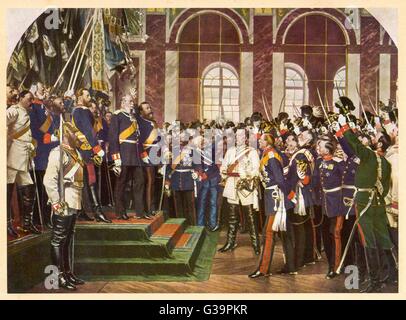Traitorfish
The Tighnahulish Kid
I don't think I understand the distinction you're drawing there. Obviously a Nation is never an actual "tribe", it's too big for that, but I don't see how you could deny, or have even attempted to deny, that the reason why nations, or football clubs, or whatever else work, is that humans are tribal, and that it is easy to tap into that tribalism, whether it is done intentionally or not. And that's all that Akka has said there, that it is obvious that people are tribal in nature, and have a tendency to identify with groups or entities.
I appreciate that I'm a bit late in responding to this, but for the record, to make my position clear:A tribe is the structure which built up our psyches. We are able to project it a bit further than a 100-people group, but the underlying structure is still here. The "in-group" vs "out-group" still works. And even more shocking : we are able to feel part of MULTIPLE groups, some included in others, some overlapping, some completely different (close family, company, country, city, species, hobby, sport team, game group...).
It's so friggin' obvious I'm always wondering when people act as if we're revealing some brand new unproved hypothesis, are being purposely blind or just in denial based on "reality clashes with my political desires of how the world should be so I'll pretend to not notice it".
I mean, for some of our most militant members, I don't have a doubt considering their entire personality seems to be constructed around denial, but for some others the jury is still in the air.
I don't dispute that humans are tribal. At least, I don't dispute that people tend to form groups, and that they to mentally construct those groups in terms of in-groups and out-groups, and that there's some sort of chemical reward for that whole process. I'm content to call this "tribalism" for the purposes of this discussion.
What I dispute is that this tribalism is sufficient or even, necessarily, a very useful way of explaining how nation-states work, or how nationalist politics work. Even the smallest nation-states are complex, bureaucratic and impersonal constructions, they don't simply happen, and certainly not because a semi-arbitrary group of people have decided that they feel very strongly about a flag and a song. While states may exploit or manipulate people's tribalistic tendencies to legitimise themselves or their actions, that is a small and secondary element of how states establish their legitimacy. It has to be; "tribal" identities are, as I've said, rooted in the personal, in recognised faces, and that's hard to pull off even in a nation of a few million, let alone tens or hundreds of millions, so "tribalism" when manifested at this scale tends to be ephemeral, a temporary burst of excitement in unusual circumstances. Far more important is the existence of robust institutions which are generally perceived as rational, just and consistent, which individuals feel are accountable to the public and over which they have some influence, however indirect, and, almost more than anything else, which simply exist, which make themselves a persistent fact of life. The most important thing that any state, any institution can be, is consistent, and "tribes" of more than a few hundred members, whose interactions are not regular and direct, are anything but consistent.
Stable nation-states, or at least stable regimes, tend to rely more on what I'll broadly call "republican" identities, which stress the relationships between the individual and public institutions, even when those identities are framed in national or even nationalistic terms. These are identities based on and intending towards regularity and consistency, of clearly-stated relationships and boundaries, rights and responsibilities, predictable and reliable, consistent. In contrast, strong appeals to tribalism tend to be found in regimes that struggle to establish legitimacy through other means, which lacks stable or robust institutions, in which institutions are distrusted or resented, or which simply struggle to make themselves felt in society. From below, it expresses an alienation from or distrust of public institutions, and a consequent attempt to assert force over those institutions by claiming political legitimacy as the dispensation of the group, the "tribe". In both cases, "tribalism" is a response to social and political conditions in which regular and predictable relations seem impossible or self-defeating. If tribalism was the rule, if it was the basic organising logic of even political society, we'd expect it to manifest consistently and in mundane circumstances, where in reality, it only strongly manifests itself in periods of anxiety or crisis, to which espousing a fluid, emotive and personal identity may seem more appropriate response than a more fixed, rational and institutional identity. People don't get "tribal" when they feel things are going their way.
Looking at xenophobic nationalism and saying "well, people are tribal" is not an explanation so much as a refusal to give an explanation, a thought-terminating cliché. It treats the nation-state as something that just is, and the way people think or feel about the nation-state as a product of dumb instinct, as if public institutions were not ongoing processes in which people actively participate, as if man was not a political animal. It's not a useful or productive way of thinking about human societies.
Last edited:

